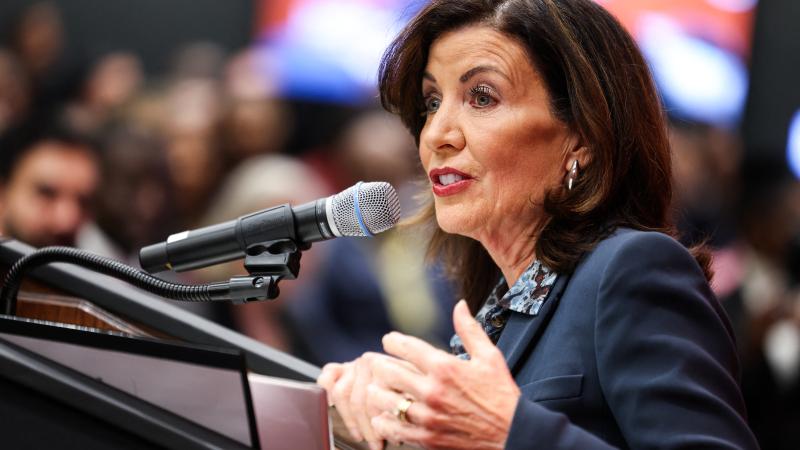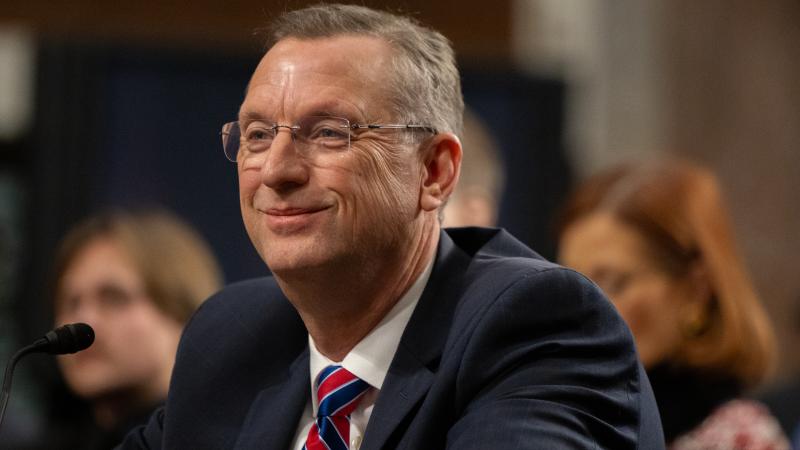Legislation heading to Texas governor’s desk strengthens protections for sex crime victims
Several bills strengthening protections for sex crime victims and penalties for perpetrators nearly unanimously passed the legislature and are headed to the governor for his signature. HB 3073, filed by state Rep. Donna Howard, D-Austin, amends the state penal code
(The Center Square) -
Several bills strengthening protections for sex crime victims and penalties for perpetrators nearly unanimously passed the legislature and are headed to the governor for his signature.
HB 3073, filed by state Rep. Donna Howard, D-Austin, amends the state penal code addressing sexual assault to explicitly define consensual sex. It was carried in the Senate by Sen. Angela Paxton, R-McKinney. It passed the House earlier this month, passed the Senate this week with amended text, and passed the House nearly unanimously again on Friday with amended changes. It heads to the governor’s desk.
Once the governor signs it, Texas will be the first state in the U.S. to have an explicit legal definition of sexual consent. In addition to other provisions, added language stipulates that sexual assault occurs without the consent of the other person when “the other person has not consented and the actor knows the other person is unconscious or physically unable to resist;” when the other person “has not consented and the actor knows the other person is unaware that the sexual assault is occurring;” or “is intoxicated or impaired by any substance to the extent that the other person is incapable of consenting.”
The bill is named after activist Summer Willis, founder of Strength Through Strides. Willis ran 29 marathons in one year to meet and uplift sexual assault survivors. In February, she crawled the Austin half-marathon and state lawmakers joined her at the finish line.
“I crawled the Austin half marathon in February for a world record attempt to begin raising awareness about the bill, that’s when it was named after me by the politicians who joined to cross the finish line with me,” she said. “Our bill got voted out on the final day, in the final hour. I’m excited about our story of hope and fight for survivors.”
Another bill heading to Gov. Greg Abbott’s desk is SB 835, filed by Paxton, the companion bill to HB 748, filed by state Rep. Jeff Leach, R-Plano. Known as Trey’s Law, it amends state law to prevent perpetrators or institutions involved with child sexual abuse from creating and engaging the victim in nondisclosure agreements (NDA) as a part of a lawsuit settlement.
It’s named after Trey Carlock, who was sexually abused by a former camp counselor in Branson, Missouri, and later took his own life. Carlock “experienced severe mental health problems after enduring years of sexual abuse and was coerced into signing an NDA, are further prohibited from speaking out about their abuse or discovery in a settled case,” the bill analysis states.
The federal Speak Out Act of 2022 prohibits the use of NDAs for adult cases of sexual harassment and assault in the workplace. Trey’s Law ensures that child sex abuse survivors are no longer silenced by NDAs, Leach argues. Passage in Texas marks “a major victory for victims and survivors of sexual abuse” and delivers “a blow to their perpetrators hiding in the shadows,” Leach said.
“Texas it's taking a long overdue stand against the cover up of sexual abuse and the silencing of victims. For too long, powerful institutions have escaped public accountability" while survivors and their families were left to suffer in silence, he added. “This law ends that practice and changes the public policy of the state forever. In doing so, we have sent a clear message: if you abuse a fellow Texan or if you harbor or assist an abuser at the expense of the victim, you will be held to account.”
SB 1621, filed by state Sen. Joan Huffman, R-Houston, is also heading to Abbott’s desk. It was filed to bring Texas’ child pornography statutes up to date to address deepfake technology and artificial intelligence being used to create sexually explicit visual material of a person or a likeness of a person, including children, Huffman’s bill analysis states.
State Rep. Caroline Fairly, R-Amarillo, carried the bill in the House. It passed unanimously in the House and Senate.
It amends state penal code by creating a new offense for computer generated child pornography, including material containing a visual depiction of a computer-generated child engaging in sexual conduct.
Offenses range between first- and third-degree felonies. Penalties for possessing child pornography carry a sentence of between 25 years and life in prison; penalties for promoting child pornography carry a minimum sentence of 15 years; penalties for promoting computer-generated child porn carry a minimum sentence of 10 years, all depending on a range of factors, according to the bill language.















